-2025.jpg)
Public Sector Development Program (PSDP) 2025-26
The Ministry of Planning, Development, and Special Initiatives is taking a very focused approach to the upcoming Public Sector Development Program (PSDP) for 2025-26. Prioritizing projects with significant financial progress and suspending low-priority ones is a smart move to optimize fiscal resources. By aligning new projects with the “Uraan Pakistan” framework and emphasizing measurable outcomes for a more effective and accountable use of public funds. The emphasis on transparency, institutional ownership, and long-term socioeconomic benefits to fostering sustainable development and growth.
|
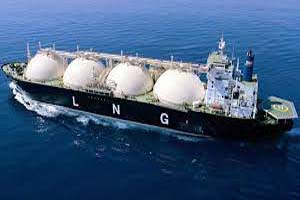
Re-gasified Liquefied Natural Gas (RLNG) Cargoes Anticipated for 2025
Sui Northern Gas Pipelines Limited (SNGPL) is trying to navigate a potential surplus of Re-gasified Liquefied Natural Gas (RLNG) for 2025, particularly during the peak summer months. The request to Pakistan LNG Limited (PLL) to coordinate with ENI and explore options for diverting surplus RLNG is a deliberate move to ensure that the excess doesn’t go to waste, especially when power sector demand is expected to remain stable or even decline. The ENI is willing to divert some cargoes without additional costs, contingent on favorable market conditions, provides some flexibility.
|
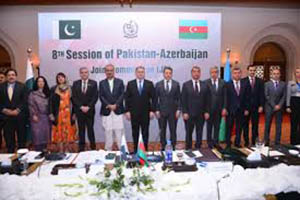
8th Pakistan-Azerbaijan Joint Commission
The eighth session of the Pakistan-Azerbaijan Joint Commission, both countries aligning on areas of collaboration like energy, defense, agriculture, education, and healthcare. The agreement to explore joint ventures and investment opportunities pave the way for stronger economic ties, especially with the push for an MoU on customs cooperation and defense equipment production. Pakistan's underground gas storage and Azerbaijan’s potential participation in the white oil pipeline. The focus on energy infrastructure, as it aligns both nations in energy security and long-term projects. The agriculture sector for joint research on cotton and grain cultivation, boost both countries' agricultural output and trade. For growing health sector ties to medical tourism and collaboration in diagnostics.
|
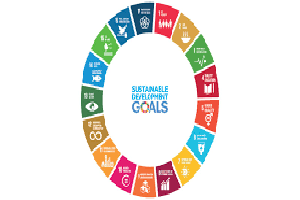
Challenges in Achieving Sustainable Development Goals
Pakistan acquaintances financial resources with technical expertise, strategic guidance, and best practices from global partners, through collaborative efforts. International partnerships, particularly with organizations the World Bank, are essential for addressing complex challenges like energy security and achieving the Sustainable Development Goals (SDGs). The focus on infrastructure, technological innovation, and energy efficiency is critical for long-term sustainable development and strengthening these areas is crucial for Pakistan to meet growing energy demands and reduce dependence on imported energy sources. Tailored policies and strategic investments are necessary to adapt to Pakistan’s specific challenges and opportunities, ensuring that the projects are not only financially viable but also socially inclusive and environmentally sustainable. Strengthening cooperation with international partners is important in Pakistan’s economy and ensuring that development projects are impactful.
|

Seafood Exports Boost
The government taking active steps to boost seafood exports, by addressing both the supply and regulatory challenges. The establishment of fish breeding hatcheries in Sindh and the release of fish seeds into rivers under government initiatives is a strategy to enhance local fish stocks and promote sustainable fishing practices. These efforts, combined with the aim to meet European Union standards, revitalize the seafood export sector and potentially lift the ban on shrimp and fish exports. The issues facing by the fishing community, such as the poor condition of fisherman’s colonies, lack of processing facilities with cold storage facilities, preserving the quality of seafood for export becomes a major challenge with challenges like sinking boats. Despite resource constraints, the government is providing support for fishermen with efforts to assist in establishing fisheries export factories and to further address the gaps in infrastructure and basic living conditions for those in the industry.
|

Wheat Deregulation in Pakistan
The federal government’s decision to deregulate Pakistan’s wheat sector as part of broader economic reforms, particularly to meet IMF conditions. Pakistan is aligning its agricultural commodity markets with global trends, which leads to better market-driven outcomes and more competitive practices, by moving away from heavy regulation. This has the potential to attract private-sector investment and foster innovation, which is crucial for improving productivity and ensuring food security. Modernizing grain storage infrastructure and improving efficiency will be central to this transformation, as inefficient storage systems have been a persistent problem in Pakistan’s agricultural sector and strengthening public-private partnerships, Pakistan can improve its wheat productivity and food security.
|
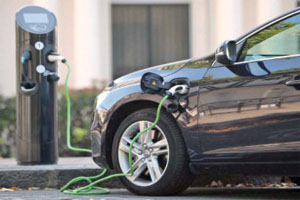
Chinese Company to Invest $340 Million in EV Sector
The $340 million investment by the Chinese company for Pakistan’s electric vehicle (EV) and green energy sectors to manufacture electric vehicles, including mini trucks and SUVs, and establish a widespread network of charging stations across the country. Pakistan’s automotive industry transforms potentially with sustainable transportation, strategies for fostering green energy to reduce carbon emissions, and address the country’s growing energy needs. The 30 charging plants will arrive within 10 days, and the plan to install 1,000 charging stations by the end of the year, demonstrates a serious push toward building the necessary infrastructure for electric vehicles to thrive. The planned manufacturing of 72,000 electric vehicles annually and 3,000 charging stations across Pakistan will create a solid foundation for EVs, making them more accessible to the public. Pakistan for EV manufacturing sector, create jobs, and contribute to its export economy to the Middle East, Sri Lanka, and Bangladesh underscores the strategic potential of this investment.
|
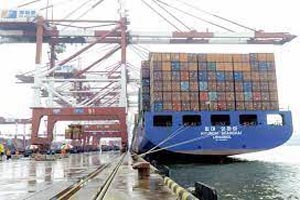
New Maritime Service - Pakistan Directly to Europe
INX maritime service connecting Pakistan directly to Europe is a transform for the country’s trade dynamics. By bypassing transshipment hubs and directly connecting to major European ports like Rotterdam, Hamburg, and London Gateway, will reduce shipping costs and cut down on transit times for exports. The businesses in Pakistan will have a more efficient and cost-effective route to key markets, which could improve their global competitiveness, especially in northern Europe. This enhanced connectivity likely to open new markets and opportunities for Pakistani exporters, particularly those in industries like textiles, agriculture, and manufacturing.
|
|
© 2025 Alpine Marine Services Private Limited
all rights reserved
|
|
|